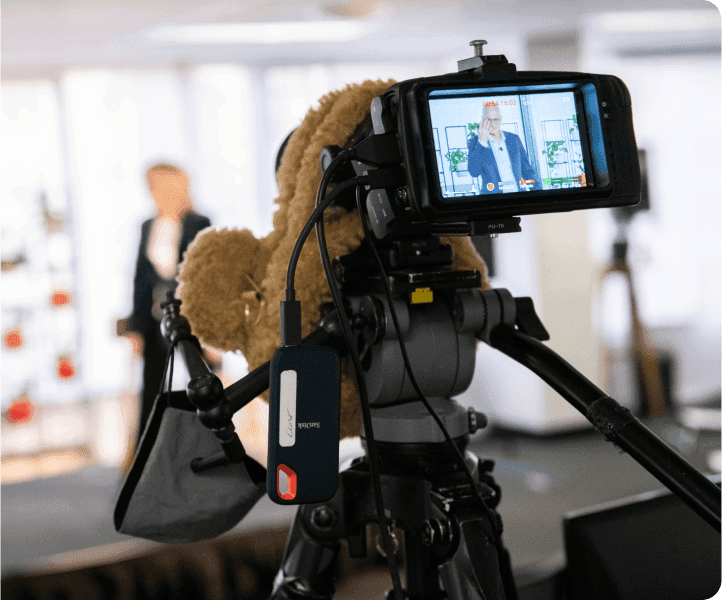Posted on October 7, 2024
Blog
Conferences
Event Management
Accelerating Organisational Learning and Execution
In today's fast-paced business environment, the ability to learn and adapt quickly is crucial for success for both organisations and individuals. One of the most powerful tools for accelerating organisational learning and execution is the practice of debriefing.
Cliftons recently hosted Daniel Walker from Afterburner for a series of keynote presentations on the practice of debriefing. While Daniel’s framework has been adapted from his military training, debriefing is not just a military technique; it's a transformative process that can revolutionise how businesses operate and improve.
The essence of debriefing lies in its structured approach to analysing performance and extracting actionable insights. Daniel shared the Afterburner S.T.E.A.L.T.H. debrief model:
- Set the Time and Place
- Tone
- Execution vs. Objectives
- Analyse Execution
- Lessons Learned
- Transfer Lessons Learned
- High Note
The Stealth Model: How it Works
It's essential to set the time and place by establishing a clear start and end time, identifying participants and their roles, defining objectives and milestones for the debrief, and considering both time-driven and event-driven factors. The tone should be nameless and rankless, focusing on events and respecting truth over artificial harmony. When comparing execution to objectives, the goal is to reconstruct events and evaluate both wins and losses. It's crucial to analyse the execution by asking how the cause occurred and why the root cause occurred.
Lessons learned involve identifying recurring root causes and determining actionable steps to avoid errors and duplicate success. When transferring lessons learned, assessing their usefulness and significance is essential. Additionally, it is vital to identify the appropriate channels for sharing and socialising these lessons. Finally, ending on a high note by recapping positive results and celebrating and motivating everyone is essential.


Creating an environment to improve
This systematic process ensures that teams don't just reflect on what happened but actively identify areas for improvement and create concrete plans for implementation. For instance, this can be debriefs for specific projects like a product launch, a marketing campaign, or a team-building event, or a look at systems and processes such as customer service procedures or supply chain management.
The power of debriefing lies in its ability to create a culture of continuous improvement. By regularly examining performance against objectives, teams can identify small inefficiencies or missed opportunities that might otherwise go unnoticed. Over time, these incremental improvements compound, leading to significant gains in productivity and effectiveness.
Moreover, debriefing fosters psychological safety within teams. When debriefs focus on learning rather than blame, they create an environment where team members feel comfortable sharing mistakes and challenges. This openness is crucial for innovation and problem-solving.
Debriefing delivers actual performance gains
The impact of effective debriefing is staggering. In a groundbreaking study, "Learning from Success and Failure," researchers from Harvard Business School found that teams that regularly debrief outperform those who don't by a stunning 20-25%. This isn't just a marginal improvement—it's a game-changing boost that can mean the difference between market leadership and obsolescence.
But the benefits continue beyond that. The landmark paper "The Power of After-Action Reviews," published in the Academy of Management Proceedings, revealed that debriefing improved team performance by up to 25% across various industries. Imagine what a 25% improvement could mean for your organisation's bottom line or mission impact.


Strategies for effective debriefing
To implement effective debriefing in your organisation:
- Make it routine: Schedule regular debriefs after key projects or milestones.
- Focus on learning: Emphasise that the goal is improvement, not punishment.
- Be specific: Use concrete data and examples to analyse performance.
- Follow through: Ensure lessons learned are actually implemented in future projects.
Depending on the nature of the project, it can also be worth considering using an off-site debrief space after projects like Cliftons. We can also provide flexible and fully equipped spaces for teams or management groups working on short-term projects, spaces configured for workshops and ideation sessions, systems and process implementation training, or strategy and planning days.
Need a venue for your debriefing needs?
With centrally located and fully equipped venues, Cliftons can provide spaces with everything you need for successful debriefing sessions, training, strategy, and planning days, or short term project work space. Our venues offer a professional and comfortable environment, state-of-the-art technology, and dedicated support from our team. Talk to us about your requirements and how we can help.

About Cliftons
Event Solutions
If you’re ready to start bringing your event plans to life, talk to our
team to discuss your goals.
Start with a no-obligation chat about what you want to achieve, and our team can guide you through the services we offer.


